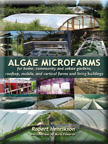REFERENCES AND ABSTRACTS BY HEALTH CATEGORY
Spirulina scientific reference library. Over 100 references covering 45 years of international research. Click on PDF Download button for free pdf file.
![]() A Review on Antioxidant Properties of Spirulina. by Asieh Asghari. Journal of Applied Biotechnology Reports Volume 3, Issue 1, Winter 2016; 345-351. Iran.
A Review on Antioxidant Properties of Spirulina. by Asieh Asghari. Journal of Applied Biotechnology Reports Volume 3, Issue 1, Winter 2016; 345-351. Iran.
Spirulina is free-floating filamentous microalgae growing in alkaline water bodies. As early as over 400 years ago, Spirulina was eaten as food by the Mayas, Toltec’s and Kanembu in Mexico during the Aztec civilization. Spirulina is a well-known source of valuable food supplements, such as proteins, vitamins, amino acids, minerals, fatty acids, etc. It is widely used in human and animal nutrition, as well as in the cosmetic industry. Both in vivo and in vitro trials have shown effective and promising results in the treatment of certain cancers and allergies, anemia, hepato-toxicity, viral infection, vascular diseases, radiation protection, and obesity. The antioxidant activities of Spirulina were demonstrated in a large number of preclini-cal studies. Antioxidants in preventing many human diseases. Findings of this study showed Spirulina can be used as a source of antioxidants.
![]() Hypolipidemic, Antioxidant, and Antiinflammatory Activities of Microalgae Spirulina. by Ruitang Deng & Te-Jin Chow. Tokai Univ. Pub. in Cardiovascular Therapeutics 28 (2010) e33–e45. 2010. USA, Taiwan.
Hypolipidemic, Antioxidant, and Antiinflammatory Activities of Microalgae Spirulina. by Ruitang Deng & Te-Jin Chow. Tokai Univ. Pub. in Cardiovascular Therapeutics 28 (2010) e33–e45. 2010. USA, Taiwan.
With its high nutritional value, Spirulina has been consumed as food for centuries in Central Africa. It is now widely used as nutraceutical food supplement worldwide. Recently, great attention and extensive studies have been devoted to evaluate its therapeutic benefits on an array of diseased conditions including hypercholesterolemia, hyperglycerolemia, cardiovascular diseases, inflammatory diseases, cancer, and viral infections. The cardiovascular benefits of Spirulina are primarily resulted from its hypolipidemic, antioxidant, and antiinflammatory activities. Data from preclinical studies with various animal models consistently demonstrate the hypolipidemic activity of Spirulina. The findings from human clinical trials are largely consistent with the hypolipidemic effects of Spirulina observed in the preclinical studies. The antioxidant and/or antiinflammatory activities of Spirulina were demonstrated in a large number of preclinical studies. A limited number of clinical trials have been carried out so far to confirm such activities in human. Currently, our understanding on the underlying mechanisms for Spirulina’s activities, especially the hypolipidemic effect, is limited. Spirulina is generally considered safe for human consumption supported by its long history of use as food source and its favorable safety profile in animal studies.
![]() Effects of Spirulina platensis microalgae on antioxidant and anti-inflammatory factors in diabetic rats. by Fariba Nasirian et al. Pub. in Diabetes, Metabolic Syndrome and Obesity: Targets and Therapy. 24.7.79.60. Aug 2018. Iran.
Effects of Spirulina platensis microalgae on antioxidant and anti-inflammatory factors in diabetic rats. by Fariba Nasirian et al. Pub. in Diabetes, Metabolic Syndrome and Obesity: Targets and Therapy. 24.7.79.60. Aug 2018. Iran.
Objectives: Lipid peroxidation and hyperglycemia are common signs for diabetes. Natural antioxidants such as Spirulina platensis microalgae (SPM) may prevent lipid peroxidation and hyperglycemia. This study aimed to evaluate the effects of SPM on antioxidant and anti-inflammatory in diabetic rats.
Conclusion: It can be concluded that diabetes decreases TM concentration and antioxidant enzymes and also increases lipid profile, glucose, AST, ALT, TNF-α and IL-6 concentrations. Inclusion of SPM supplementing (20 and 30 mg/kg body weight) increased some TMs and antioxidant enzymes. SPM may provide TMs for synthesis of antioxidant enzymes which sub-sequently reduce lipid profile, glucose concentration and anti-inflammatory responses.




